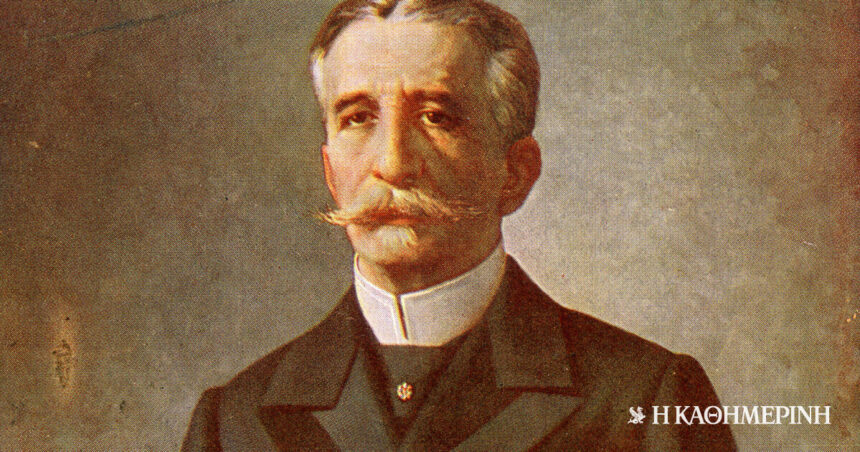The situation in Greece at the dawn of the 20th century, as a result of the disastrous consequences of the defeat in the Greco-Turkish War of 1897, had many peculiarities: the economy presented problems, the cases of robberies were increased, the farmers rebelled while there were also disturbances centered on religious issues.
The first sample of the disorderly situation was presented on the occasion of Queen Olga’s decision to request the assistance of the scholar Alexandros Pallis, a close associate of Yiannis Psycharis, to translate the Gospel into the vernacular, with the reactions being immediate and intense. From the beginning of October, newspapers accused the populists as atheists and professors of the Athens School of Theology would request the immediate ban on circulation of this particular translation. Strongly influenced by the Russian origin of Queen Olga, and with the fear of “Pan-Slavism”, a rally would be organized on November 8, where the protesting crowd demanded the excommunication of those who had “desecrated” the holy text of the Gospel. The conflict with the police would lead to 8 dead and dozens injured. Interest of the “Evangelicals” was the resignation of the government of Theotokos, in a political setting, in which the balances were already particularly fragile.
In these circumstances, King George I entrusted the formation of a government to Alexander Zaimis. The latter, however, had 14 MPs and only the support of Theotokos in Parliament. Naturally, the opposition could not accept this, and an election was called for November 17, 1902. These elections were characterized by intense fanaticism, as well as incidents of violence and fraud, according to complaints. Despite all this, they did not seem to solve the problem as, despite the defeat of Zaimis’ party, neither the Theotokos – the continuation of the three-party party – nor the Dilijan party managed to secure an absolute majority.
The situation in Athens again looked like a boiling cauldron. King George I, for his part, instead of appointing a prime minister between the top two in the elections, decided to form a caretaker government, calling the president of the Supreme Court, Ioannis Simantiras, who refused, considering that it would not be possible to enforce order. The king’s second choice was the formation of a military government led by his assistant, Ioannis Papadiamantopoulos.
Upon hearing this news, the reaction was immediate. On November 18, 1902, followers of Diligiannis took to the streets. They stoned newspaper offices, while there were also clashes with the followers of Theotokos. The situation would worsen even more, when in the general tension, the people of Dilijan would tear the boards from the construction scaffolding that was on the Stadium, and would destroy shop windows, doors and windows of houses.
The episodes, which were particularly violent – with many injured – would end five days later, on November 23, when George entrusted Diligiannis with the formation of a government, who was sworn in the following day.
The “Sandics”, as they became known, would not be the last case of such events in the early 20th century. The “Oresteikas” would follow a year later, while Diligiannis himself would be stabbed in front of the Old Parliament, on May 31, 1905.
Column Editor: Myrto Katsigera, Vassilis Minakakis, Antigone-Despina Poimenidou, Athanasios Syroplakis




